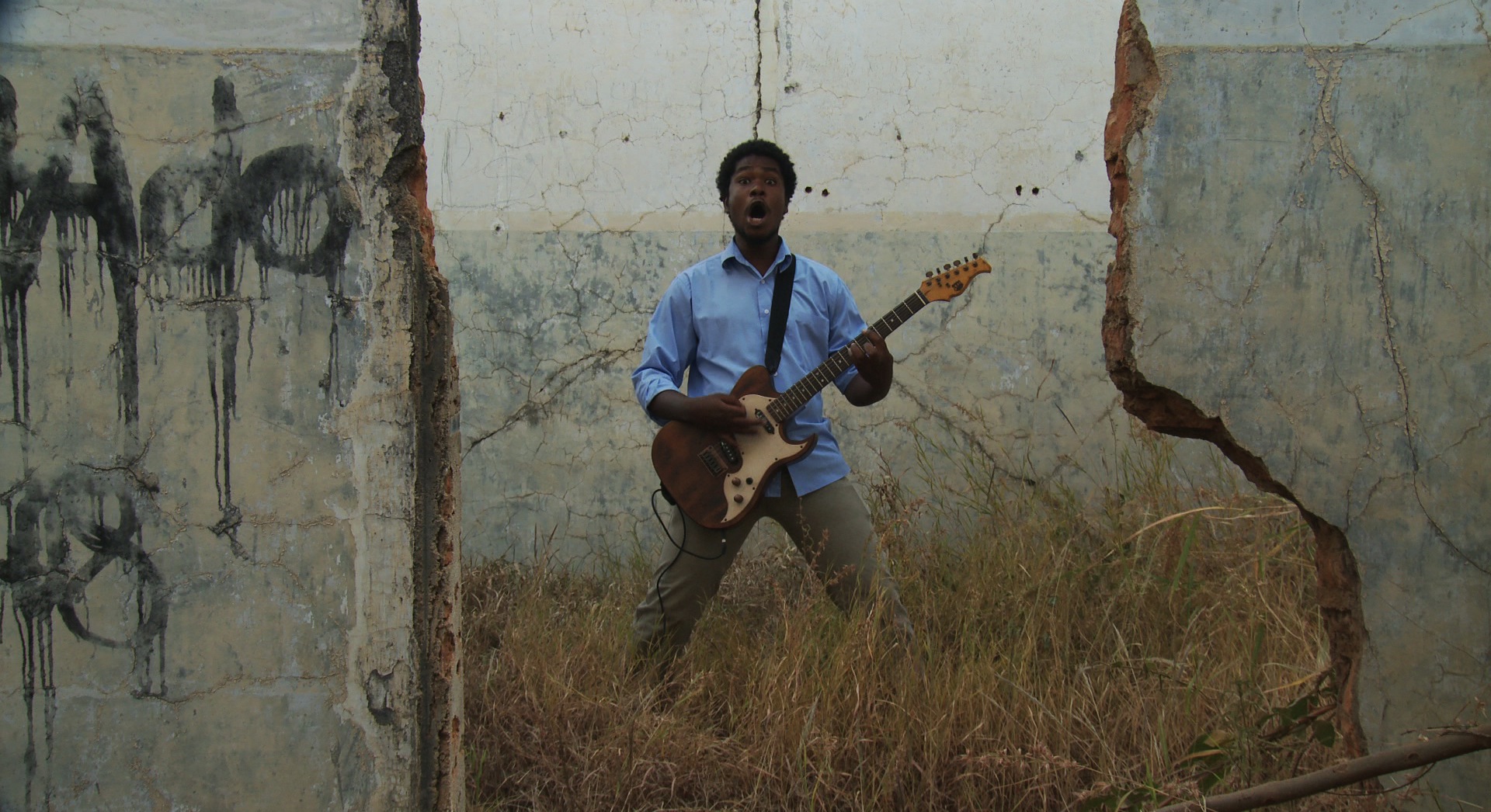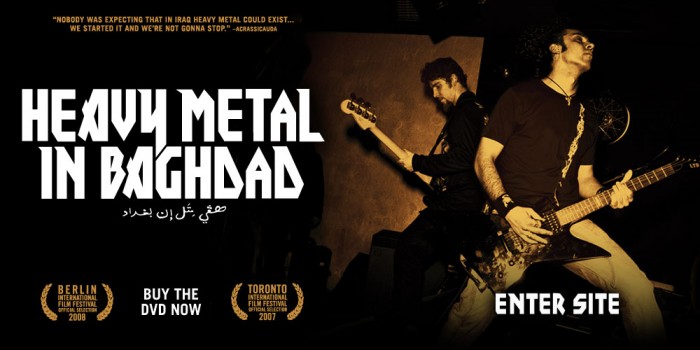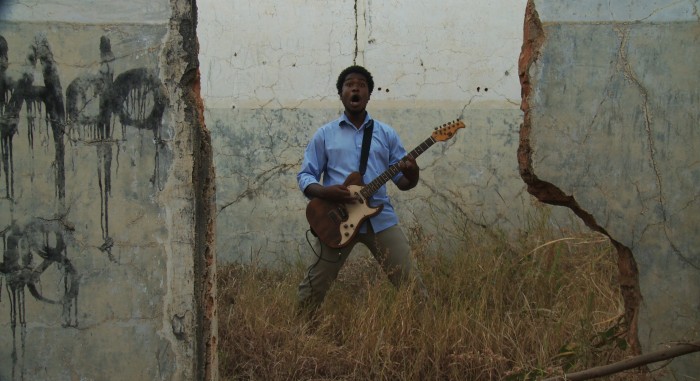How can you be sure that you’re right if you haven’t checked all the other possibilities? That’s kind of the state of mind I was in several years ago when I decided to take interest in other cultures, because I felt pretty good about European/Occidental culture, but what if I was wrong? What if I missed something elsewhere? That’s why I searched how my favorite thing – extreme music, that is – was perceived and conceived in other parts of the world.
My first “wake up call” was when I saw the documentary Heavy Metal in Baghdad. I was kind of shocked and also sad that something so easy to do in my country (France) could be a matter of life and death in other ones. I mean, in Europe in general, it’s quite easy to organize a show if you know the right people, and whether the music involves satanic imagery or pig’s blood spilled all over the front row, you can still manage to play. So to see people so dedicated that they have to play underground really makes you appreciate the strength that music has (any kind of it, actually). What disturbed me was also the involvement of the government in your music, and the right that they had to just stop a show or forbid you to play. When you control the media, you can manipulate people into thinking everybody is a satanist without people even knowing what being a satanist really means. I’ll put the documentary below, but I only found one with Spanish subtitles. It’s a must see.
So this was in 2007, and one year later, in 2008, Mark LeVine published a book called Heavy Metal Islam, which narrates his travels to several countries of the Middle East to interview metal bands. I got a reedition of the book from 2011 with a new introduction by LeVine, so even if the book can feel kind of dated, that’s pretty much all we got.
Through Morocco, Iran, Pakistan, Lebanon, Israel, Palestine and Egypt, he depicts a world where making heavy music and not be considered a spawn of the devil with everyone looking at you like you’re not welcome here, is nearly impossible. Some of those countries are harsher than others (especially regarding laws), but yeah, it’s not uncommon to be considered satanist just for playing heavy music. The struggle for those bands, despite the fact that playing a show is pretty hard, is the lack of means and money to export your music. Some of them got European labels to produce some albums, but let’s say this is pretty rough to “get it out there” even though it’s becoming easier with internet and social medias.
The major issues that people have with heavy music, is that it’s considered unholy, or unworthy of someone’s faith. It’s too occidentally inspired to reflect the true faith of islam, and since we deal with very religious people, you can’t help but see the same fear that Scandinavian people had when they saw their nordic gods replaced by Jesus Christ. Heavy metal, or black metal, or any kind of extreme music really has a pretty nihilistic or atheistic feel to it (whether it’s legitimate or not), so when you’ve been very religious all your life and highly dedicated to living through your god’s word, seeing your children speak of change and rebellion while playing a music that is often inspired by the guy who claimed “God is dead,” it’s easy to be afraid.
Let’s look at an anecdote outside of this book. In an interview with Le Monde Afrique published earlier in 2015, 26 year old Moroccan Amine Khairi related how he couldn’t get married to his German fiancée because authorities depicted him as a satan worshiper. Why? Because he likes metal and dresses as such. This echoes the sad story (also told many times in the book) of 2003, when musicians were publicly shamed and convicted of being satan worshipers just because of their musical tastes.
Making someone understand that it’s not how we say it but what we actually say that counts, is pretty hard when the way you say it is by screaming into a mic. Anyhow, I recommend you to read this book because it’s extremely interesting and can be an eye-opener for some. He also makes a lots of comparisons with the rap scene, where you can see the parallel in people’s eyes between two utterly provocative and revolted genres (if you were so inclined you can watch the documentary Channels of Rage).
In 2013 at the “Étrange Festival” in Paris, two documentaries were shown, one was called East of Hell and was about heavy metal in Indonesia, the other was Death Metal Angola. Sadly I wasn’t there to see the latter, and it’s been hard to find it ever since, but it was critically acclaimed (and you can learn more about it on the official website or by reading this review on Africa Review).
Still talking about things I have not seen yet, there’s the other movie by the creators of Metal: A Headbanger’s Journey, called Global Metal (2008). They don’t speak specifically about Middle East, but they definitely go there along with Asia and South America.
Sadly, I can’t find recent films, books or documentaries that could give me more information about this specific subject, but I have noted through my researches that a book called “Heavy Metal Africa” is currently being made, as well as a documentary called the Distorted Island about metal in Puerto Rico (yes, I know it’s not Africa, but I wanted to salute the gesture). In hopes of more people listening and performing heavy music all around the world, regardless of their beliefs, I say be curious about other cultures and stop being afraid.









